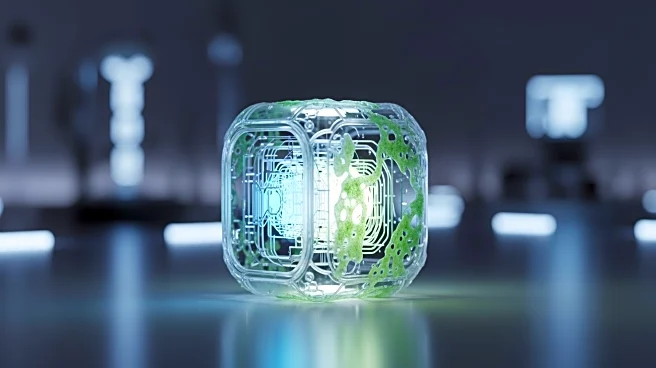What's Happening?
Researchers at EPFL in Switzerland have developed a fully edible robot, including its battery and actuator. This innovation involves a battery made of gelatin and wax, storing energy through citric acid
and baking soda, which are safe for consumption. The robot's actuator uses CO2 gas generated by the battery to create movement, with an ingestible valve enabling cyclic actuation. The robot is designed for potential applications in delivering medication or nutrition to elusive animals, such as wild boars, by mimicking live prey. This development represents a significant advancement in biodegradable and environmentally friendly robotics.
Why It's Important?
The creation of a fully edible robot marks a breakthrough in sustainable robotics, offering potential applications in wildlife management and environmental conservation. By providing a safe and biodegradable method for delivering medication or nutrition, this technology could revolutionize how interventions are conducted in natural habitats. The innovation also highlights the growing focus on environmentally friendly solutions in robotics, potentially influencing future research and development in the field. This approach aligns with broader efforts to reduce ecological impact and promote sustainability in technological advancements.
Beyond the Headlines
The development of edible robots raises ethical and environmental considerations, particularly regarding their deployment in natural ecosystems. Ensuring that these robots do not disrupt local wildlife or ecosystems will be crucial. Additionally, the technology's potential applications in human medicine and food delivery could lead to new industry standards and practices, emphasizing safety and sustainability. The innovation may also inspire further research into biodegradable materials and their applications in various fields.










